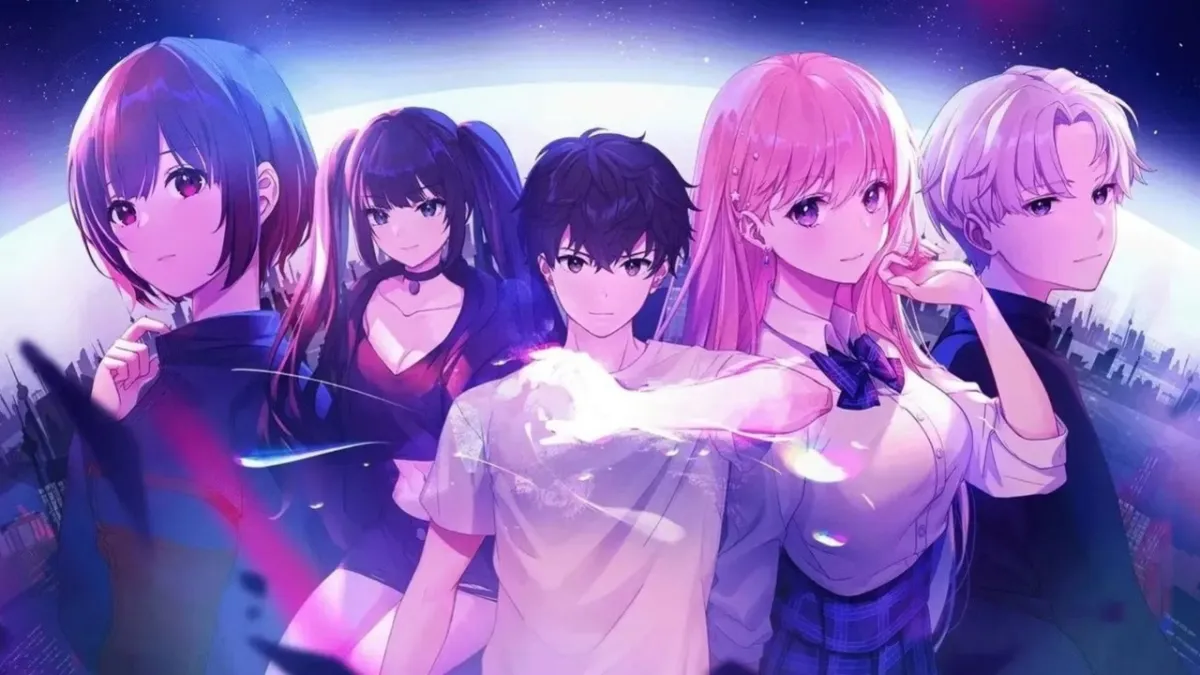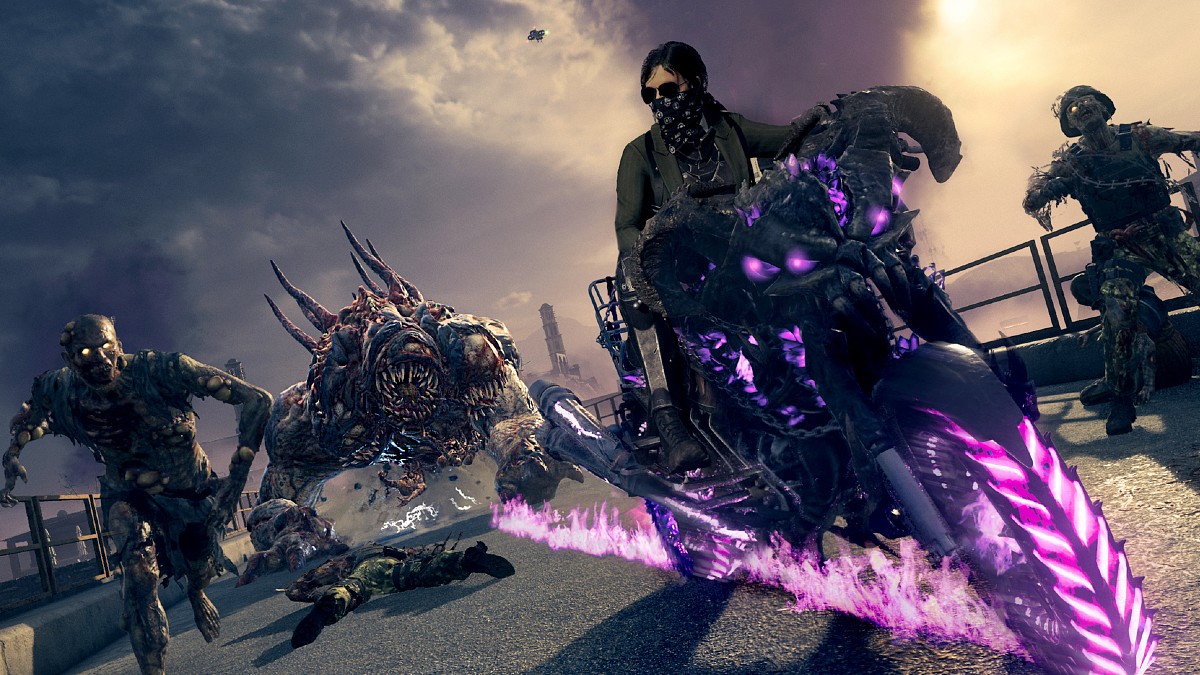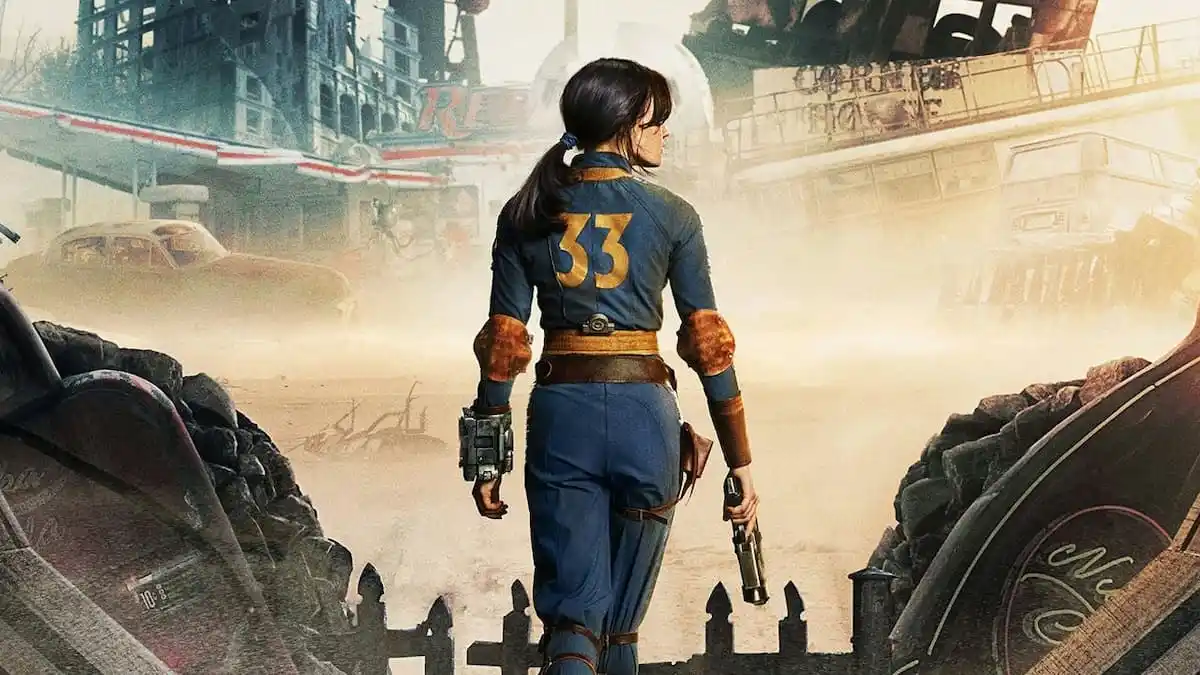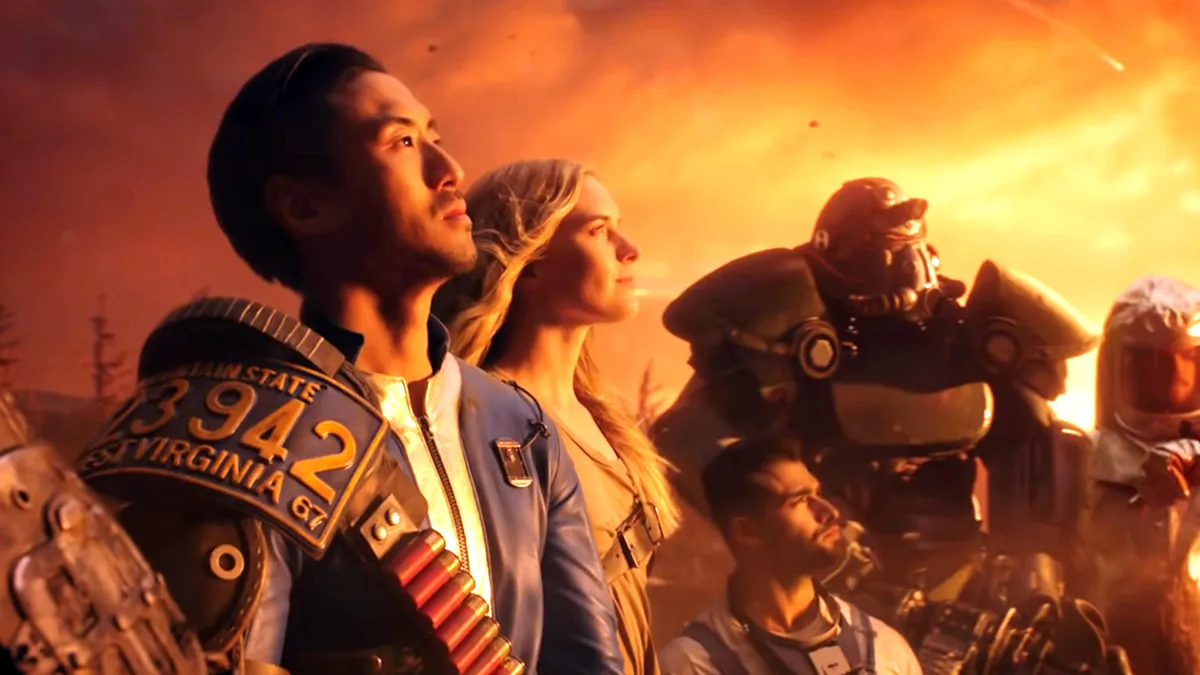Early on in Eternights, you find a pile of dead bodies, each one missing their right arm. The best friend character remarks that it’s messed up, which is a bit of an understatement. Soon afterwards, the player character is tied up, and has their right arm cut off too. For a moment, there’s shock on his face, and the game seems to grasp the gravity of what has just happened. It doesn’t last.
Minutes later, the protagonist’s severed arm is replaced with a magical arm that transforms into a sword. Even though he now has a functioning arm, he’s just experienced a lot of pain and shock, and that would stay with a person. But of course, he’s the protagonist, and he has no opinion on having his arm cut off. It quickly becomes a joke that when he fails to transform his magical arm into something, it turns into a weird tentacle. None of the other characters seem worried about how he feels about losing the arm. In fact, they think it’s cool that he can fight, since he’s the only one with a proper weapon. As soon as the problem is superficially fixed, it’s swept under the rug and becomes a joke.
Related: Eternights Review in 3 Minutes
To be fair, this is a self-insert protagonist. He doesn’t speak unless the player selects a dialogue option, so the developers probably made him bland on purpose. But this is roughly how the game deals with all its traumatic events.
Eternights goes to some dark places. It puts teenagers in situations that would traumatize anyone, and lead to a prolonged and messy period of recovery. But the game ultimately fails to deliver on the traumatic consequences of the events in its story, and it’s worse for it.
Eternights wants to juggle two tones; lighthearted teen dramedy, and dark apocalypse story. This is a weird blend, but it’s not bad on its face. Relentlessly dark stories can get boring, and comedy and lighthearted drama can be a good emotional contrast. That said, you can risk undercutting your narrative’s integrity if the two halves become too separate. The comedic moments should highlight the sadness, rather than undercut it.
The central premise of Eternights is that the majority of the population have turned into monsters, and the rest are barely sane and slowly changing. The only people who are still sane are a handful of teenagers on a train trying to save the world.
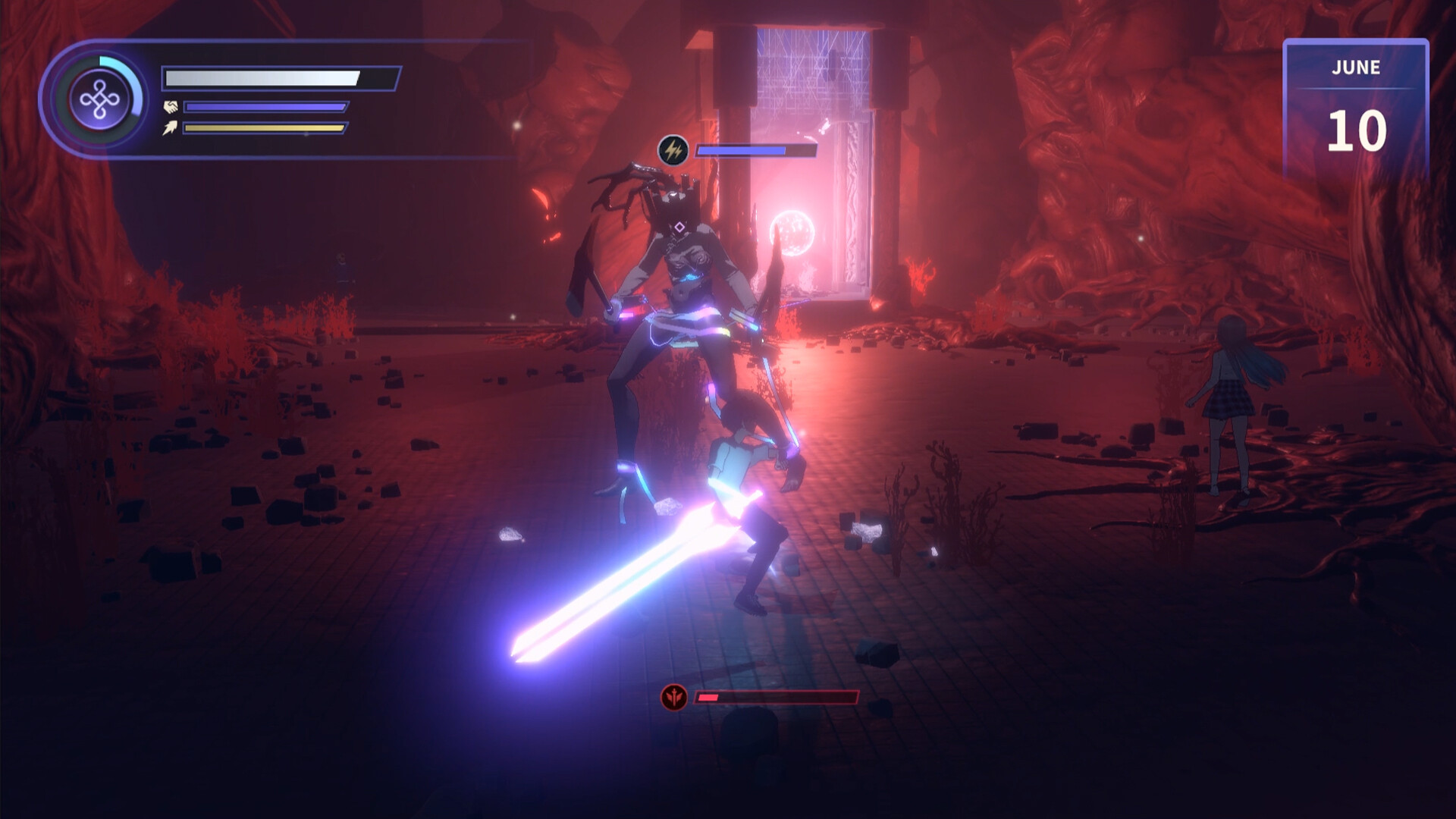
Three of the game’s characters spend months isolated in a bunker. On its own, that’s traumatic. But once they escape, things only get worse. There’s an early scene in which Yuna, a pop star, unknowingly gets tens of thousands of her fans killed by essentially clicking a phishing email link that claims clicking it will help people. When she realizes, she’s horrified, and decides that trying to help only makes things worse, and she should stop.
Three scenes later, she’s finished her short recovery arc. The game shows her doubt, then her getting inspired and overcoming her fear of trying to help. While she’s sad about what happened, it mostly leaves the story. It’s an abbreviated version of a typical character arc, but it doesn’t really work for something so big and awful.
Min, another teenage girl, abandons her friends and hides when they’re attacked by monsters. She has survivor’s guilt, and it’s made even worse by the fact she has magical powers, and might have actually been able to save them. Of course, a few scenes later, she’s mostly over it.
Grief and trauma recovery aren’t linear or logical. A person who seems to be recovering one day can look non-functional the next. It’s okay for Eternights to want to simplify things. Most stories prefer to make sense, even if the real world doesn’t. But a story like this one is begging for a depiction of the cyclical nature of trauma, the way that you grieve over and over again at seemingly small provocations, or flip out over nothing because it reminded you of your trauma.
Instead, Eternights wants to be like Persona, a series where most of the characters’ traumas are smaller, and the game resets to a comedic tone once it’s done with the serious parts. Even Persona struggles under this paradigm. Jokes that trivialize Ann’s trauma around being sexualized come to mind. But Eternights could have walked this line more deftly, given its smaller cast and more focused and dark story.
Related: Eternights Is a Promising Blend of Action, Dating, and Anime Style
Both games use their confidant system to give one on one time with characters and their traumas. All Eternights really needed to do was let the characters show their emotions strongly, rather than blunting them with comedy or emotional distance. These are extremely recent events for these characters, and they should lead to outbursts and difficult conversations and awkwardness.
Instead, Eternights doubles down on comedy. This isn’t a fundamentally bad choice. It lends the game a comfortable hangout vibe, where you choose a confidant to spend time with, watch a funny scene play out with maybe a side helping of calmly discussing their trauma, and then go back to the train and pick again.
There’s a comfortable feeling to playing this game, where something shocking might happen in the main story, but once you’re back on the train picking optional content, you know nothing really bad or challenging will happen. This gives the player time to emotionally rest between big scenes, which seems like a purposeful choice to moderate the tone. Sure, there are monsters, mass deaths, and trauma, but you’re also going to get a safe helping of comedy.
This comedic tone is assisted by the scavenging, which is often given comedic context. Sometimes characters will ask for serious things like pads or batteries, and other times you’ll be risking your life for a limited edition bear mug.
Quite a few of the characters have regrets from before the apocalypse that they need to deal with, and these feel more authentic given the amount of distance these characters have had from those events. When Yuna ruminates about a friend she didn’t stand up for, that hits me as something she really would care about after the apocalypse. Her biggest regret from her life before re-emerging now that the world is ending. It’s just that the game doesn’t give equal emotional weight or time to things that happened recently and would likely be just as prominent in her mind.
In many ways, fiction has to feel safe for us to want to engage with it. There’s often intentional distance from things like violence in video games, because the game is designed to be enjoyable and not disturbing. But Eternights’ story goes too far in this direction and undercuts the power of its emotional arcs.
When I think about the story of Eternights, it’ll be about the silly jokes, the teen drama, and the time the main character created a parachute in the shape of a bra. I saw flashes of emotional depth in this game that rang true, but weren’t followed through on, and so they’ll fade away with the memory of this game until I remember the bulk of the experience: jokes about tentacle porn. There are so many.

